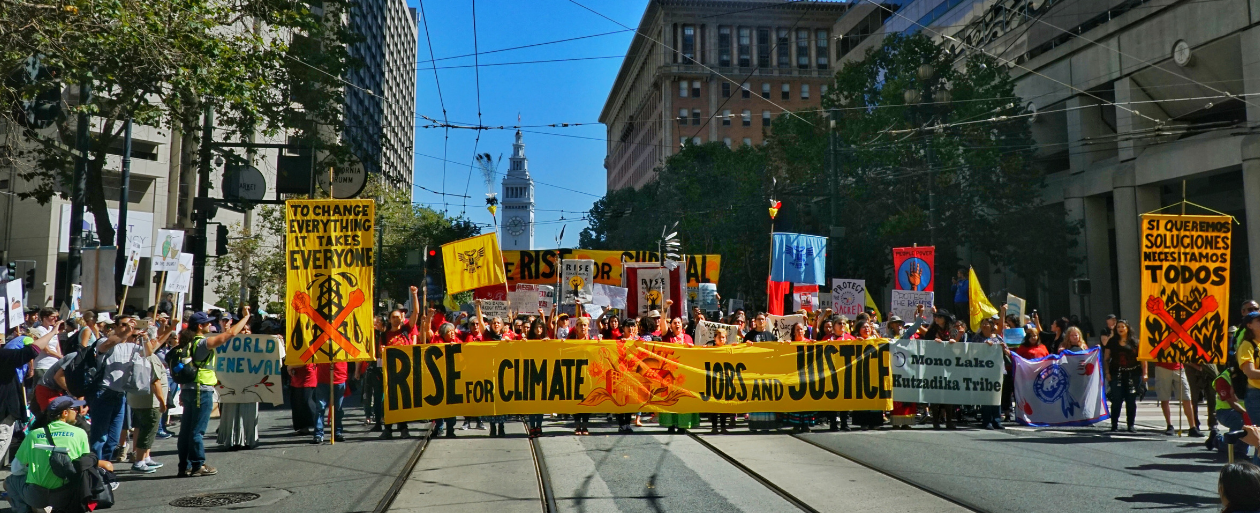
On Monday, October 8, the Intergovernmental Panel on Climate Change, a U.N. – sponsored group of the world’s top scientists, released a much-anticipated report on our warming world.
And the verdict? We only have 12 years left – at the most – to change our habits, halt the steadily increasing temperatures and avert a global crisis that will put several hundred million lives at risk.
Scientists, economists, and environmental activists worldwide are calling for urgent action. We cannot ignore the report, yet choosing a unified path of resistance may be a difficult endeavor.
The report was commissioned by policymakers following the Paris climate talks in 2016. However, since those talks political leaders around the world have withdrawn support for united global action, including the President of the United States, Donald Trump.
Economists are calling for carbon taxes, stating that a tax on global carbon emissions is one solution to this international problem. Yet, carbon pollution would have to be cut by 45% by 2030 to save the planet – a huge undertaking. To achieve that goal, we’d need national leaders to be on board.
As the clock continues to tick, the situation growing more urgent by the day, what is the solution?
While politicians move slowly towards action, or fail to acknowledge the report at all, grassroots activists worldwide are responding to the urgent crisis that threatens their way of life and the planet we all depend on. Local communities, organizations, and individuals are stepping up to the challenge, taking small steps that together form a larger movement.
Instead of waiting for technological advances that will pull carbon out of the atmosphere, or for political leaders to come to an agreement on the next steps – solutions that could take years to implement – we need to invest in the people who are acting now.
Frontline activists are wasting no time, yet lack the resources necessary to move the needle in a way that benefits us all.
In response, grassroots funders, like Global Greengrants Fund, support these local activists and climate leaders. While there is no silver bullet solution, here are a number of reasons why investing in grassroots activists may be our very best option:
Work happening on the frontlines is the most important. Internationally, the most important efforts, by far representing the biggest monetary investment, is local-level work led by countless communities, local institutions, and governments all around the world. Local environmental work far out-finances, in both monetary and labor and time, anything that global meetings will ever match through their commitments, yet leaders completely ignore financing grassroots efforts.
Global Greengrants Fund awards over 900 grants each year in over 100 countries. The average grant size is less than $5,000, but with that money local leaders are taking direct action, not simply talking about potential action many years down the line.
Climate justice is the real deal. There is a justice component that keeps getting swept under the rug. The climate crisis is exacerbating inequality for people who have least contributed to the drivers of the environmental crisis globally. Those people are currently living with the consequences of a problem they did not create. Sea levels are already rising, forcing island communities to be relocated from their homes. Farmers in rural Africa are losing their crops to chronic drought. Indigenous communities in the Amazon rainforest suffer from cancer and rashes due to waterways overflowing with spilled crude oil at the fault of major corporations. These communities, though not at fault for what they experience each day, are rising up to find and implement solutions.
We need to invest in the grassroots. While local people may be taking action, the majority of funders, governments, and organizations are not investing in the people most affected, nor protecting or furthering critical local mechanisms to protect what we still have. Top down commitments rarely trickle down. Instead they create large new parallel projects without reaching the work already happening. This has been shown repeatedly in the world of climate finance and U.N. gatherings. The unintended consequence is that we are distracting ourselves with “heroic” ideas, rather than trying to slow the global disintegration of the fabric of local natural resource management and protection.
Local people are the best stewards of their environments. Yes, we know that the U.S. and Europe – and now China and India – need to get off fossil fuels, which will be costly and major commitments are needed to do so. But at the same time the world, and especially philanthropy and civil society, has to step up our support to existing local institutions and initiatives all around the world that manage and protect natural resources and monitor and control local level polluters and deforesters. These institutions are not only under-resourced, but are falling apart globally in the face of corrupt and autocratic governments. This is happening at the exact moment when we need to strengthen them, influence political will, and change people’s behaviors to better protect what remains.
The time to act is now. To join local activists and grassroots leaders, take small steps that have a big impact. Plant a tree, reduce your own carbon footprint, ride your bike to work. If you want to take it even further, make a donation to organizations such as Global Greengrants Fund who work with activists on the ground to support locally-led solutions. Additionally, only 100 companies are responsible for 71% of global emissions. Divest from those companies, or support organizations working against them.
Throughout history, people have faced seemingly insurmountable challenges and risen above. This is one of those moments. Together, we can overcome this obstacle, but it will take each and every one of us, using every moment we have to provide a safe and healthy planet for future generations.
